#Free Geocoding APIs
Explore tagged Tumblr posts
Text
#web#design#code#codeblr#developer#developers#free#tool#tools#api#service#ai#app#cache#db#email#sms#image#geocoding#users
0 notes
Text
Address Verification API Pricing Models: Which One Suits Your Business Needs?
An invalid address might cost your business more than you realize—reshipments, customer churn, and fraud. But while Address Verification APIs solve these problems, choosing the right pricing model is critical to cost-effectiveness. Let’s decode what works for different business types.

What Factors Affect Address Verification API Pricing?
Volume of Requests
Level of Accuracy
Real-time vs Batch Processing
Coverage (Domestic vs Global)
Data Enrichment Features (Geocoding, Lat/Lon, Metadata)
Popular Pricing Models
1. Pay-As-You-Go
You pay per request. Ideal for startups or seasonal campaigns.
Pros:
No upfront commitment
Easy to scale up or down
Cons:
More expensive at scale
2. Monthly Subscription (Tiered Plans)
Fixed monthly cost for a range of address verifications.
Pros:
Predictable billing
Discounts at higher tiers
Cons:
May pay for unused capacity
3. Enterprise Custom Pricing
For businesses processing millions of addresses or needing compliance-heavy features.
Pros:
Custom SLAs and support
Integration with legacy systems
Cons:
Requires negotiation and contracts
4. Freemium + Paywall
Basic tier free; advanced functions require payment.
Great For:
Developers testing integrations
MVP (Minimum Viable Product) launches
Comparison Table of Providers and Pricing
ProviderFree TierPay-As-You-GoMonthly PlansEnterprise OptionLobYesYesYesYesSmartyYesYesYesYesPostGridYesYesYesYesLoqateLimitedYesYesYesMelissaLimitedYesYesYes
Real Cost Examples
Startup (under 10,000 verifications/month) → ~$20–$100/month
E-commerce store (50,000–200,000) → $0.0015–$0.005 per verification
Enterprise (1M+) → Custom quote, typically under $0.001 per record
Hidden Costs to Consider
Support and SLAs
Data Storage and Retention Fees
Premium API Endpoints (for Geocoding or Metadata)
Onboarding or Setup Costs
Choosing Based on Business Size
Startup: Go freemium or pay-as-you-go
SMB: Tiered monthly plan with room for volume spikes
Enterprise: Bulk discounts + SLA-based support
How to Estimate Your API Needs
Determine Address Volumes Per Month
Check If Batch or Real-Time Is Required
Map Business Criticality (e.g., legal compliance)
Optimizing Usage to Cut Costs
Use caching to avoid repeated calls for the same address
Run batch validations for mailing lists
Only verify new or changed entries in your database
Vendor Selection Checklist
Clear documentation and SDKs
Transparent pricing with no hidden fees
High data accuracy (>99%)
Real-time + batch support
SLA guarantees (especially for B2B use)
Conclusion: One Size Doesn’t Fit All
Address Verification API pricing isn't a one-size-fits-all model. Whether you’re running a startup or a multinational business, the right pricing structure aligns with your data volume, accuracy needs, and budget. Evaluate wisely, scale smartly.
youtube
SITES WE SUPPORT
Check Postcard With API – Wix
0 notes
Text
Essential APIs for Mobile App Developers

In the fast-paced world of mobile app development, APIs (Application Programming Interfaces) have become indispensable tools. They allow mobile applications to communicate with external services, platforms, and systems efficiently and securely. For developers and businesses alike, choosing the right APIs can mean the difference between an average app and a market-leading product.
Whether you're a startup founder, product manager, or CTO, understanding which APIs are essential is crucial when working with a mobile app development company in London. APIs not only enhance functionality but also accelerate development time, improve user experience, and ensure seamless integration with third-party services.
In this post, we’ll explore the most essential APIs for mobile app developers today — and why partnering with experienced mobile app designers in London can help you make the best choices for your product.
1. Authentication APIs
Every secure mobile app begins with authentication. Whether your app requires simple email/password sign-ins or complex multi-factor authentication, there are powerful APIs available.
Key Options:
Firebase Authentication (Google): Easy integration with social logins like Google, Facebook, Twitter.
Auth0: A flexible solution supporting multi-factor authentication and enterprise SSO.
Apple Sign-In API: Mandatory for iOS apps that offer third-party logins.
A skilled mobile app developer in London can guide you in selecting and implementing the right authentication API based on your app’s audience and compliance needs.
2. Payment and E-commerce APIs
With the rise of mobile commerce, integrating secure and seamless payment options has become essential. Whether you're building an e-commerce platform, a subscription service, or an on-demand app, payment APIs ensure smooth financial transactions.
Popular APIs:
Stripe: Offers a rich set of tools for online payments, subscriptions, and billing.
PayPal/Braintree: Provides reliable and globally accepted payment solutions.
Square API: Best for retail or restaurant-related mobile apps.
Apple Pay & Google Pay: Ensure smooth native payment experiences on iOS and Android devices.
Working with an experienced app development company in London ensures compliance with GDPR and PCI-DSS standards while also optimizing the checkout experience.
3. Maps and Location APIs
Location-based services are at the heart of apps in travel, delivery, ride-sharing, and fitness. Maps and geolocation APIs allow apps to provide real-time directions, geofencing, and location tracking.
Key APIs:
Google Maps Platform: Provides location tracking, geocoding, routes, and live traffic data.
Mapbox: Offers customizable maps and offline capabilities.
Apple MapKit: Native integration for iOS apps.
Mobile app designers in London often work on apps for sectors like transport, tourism, and delivery — making map integration a high-demand feature in the UK capital.
4. Push Notification APIs
Push notifications are vital for user engagement. They remind users of updates, promotions, and actions they need to take within an app.
Reliable APIs:
Firebase Cloud Messaging (FCM): A free service for sending push notifications to both Android and iOS.
OneSignal: A robust cross-platform solution for targeting and segmentation.
Airship (formerly Urban Airship): Offers advanced engagement analytics and messaging automation.
An app developer in London with experience in engagement strategies can help fine-tune notification delivery to avoid user fatigue while maximizing retention.
5. Analytics and Performance Monitoring APIs
Understanding how users interact with your app is critical for success. Analytics APIs allow developers and marketers to track key performance indicators (KPIs), user flows, and crash reports.
Essential APIs:
Google Firebase Analytics: Tracks in-app behavior, user segments, and conversion funnels.
Mixpanel: Focuses on user interactions and advanced segmentation.
Crashlytics: Monitors crashes in real-time with diagnostic reporting.
A mobile app development company in London can implement custom tracking events to align analytics data with your business goals.
6. Social Media Integration APIs
For apps that require user-generated content, social sharing, or community-building, social media APIs are essential. They allow users to connect their accounts, share content, and interact with others.
Widely Used APIs:
Facebook Graph API
Instagram Basic Display API
Twitter API v2
LinkedIn API
Incorporating these APIs correctly ensures smoother user onboarding and improved social engagement. Mobile app designers in London often recommend strategic integration to boost organic app growth.
7. Streaming and Media APIs
If your app involves media — whether it's video streaming, music, or live events — media handling APIs are vital for delivering smooth and high-quality experiences.
Leading APIs:
Vimeo API / YouTube Data API: For video content management and streaming.
JW Player API: A customizable video player with analytics.
Spotify SDK / Apple MusicKit: For apps with music streaming features.
An app development company in London can help you navigate licensing requirements and bandwidth optimization strategies essential for media-heavy apps.
8. Chat and Communication APIs
Real-time communication is a must-have in apps for support, customer service, or community interaction.
Commonly Used APIs:
Twilio: Enables SMS, voice, video, and chat.
Sendbird: In-app messaging and chat.
Agora: For real-time video and audio calls.
With the growing demand for remote communication tools, app developers in London are integrating these APIs into educational platforms, dating apps, and telehealth solutions.
9. Cloud Storage APIs
Cloud storage APIs enable mobile apps to save data securely and access it on multiple devices, allowing seamless user experiences and data synchronization.
Popular Solutions:
Firebase Realtime Database / Firestore
Amazon S3 (AWS)
Microsoft Azure Blob Storage
A mobile app developer in London can assist in choosing a scalable, secure cloud backend for storing images, documents, user data, and more.
10. IoT and Wearable APIs
As smart devices continue to rise in popularity, integrating mobile apps with IoT systems or wearables is becoming increasingly common.
Top APIs:
Apple HealthKit & Google Fit: For health and fitness tracking apps.
Samsung SmartThings API
Bluetooth Low Energy (BLE) APIs: For real-time device-to-device communication.
Apps designed with IoT in mind are especially popular in sectors like health tech, smart homes, and transportation — areas where mobile app designers in London are making a mark.
Why APIs Matter for Business Success
APIs reduce the time and cost of development while significantly enhancing app functionality. Instead of building every feature from scratch, developers can leverage best-in-class services through APIs — whether it’s processing payments, delivering maps, or enabling real-time chat.
However, selecting the wrong API or poorly integrating it can lead to performance bottlenecks, security issues, and a poor user experience. That’s why many businesses prefer to work with a trusted app development company in London that brings both strategic and technical expertise to the table.
Final Thoughts
In 2025 and beyond, mobile app success will be driven by smart integration, seamless functionality, and speed to market — all of which are enabled by the right APIs. Whether you're building an app for consumers or enterprises, using the right combination of APIs will allow you to deliver a superior experience while optimizing development resources.
Choosing the right mobile app development company in London or collaborating with expert mobile app designers in London can dramatically improve your product’s success rate. From authentication to analytics and from social integration to cloud storage, the APIs you select today will shape the user experience tomorrow.
If you're looking to build a robust, future-ready app, consider hiring an experienced mobile app developer in London or an app developer in London with proven knowledge of integrating modern APIs and delivering scalable digital products.
#mobile app development company in london#mobile app designers in london#app development company in london#mobile app developer in london#app developer in london#Essential APIs for Mobile App Developers
0 notes
Text
Phone Number Library: The Backbone of Modern Telecommunication Software
Introduction
In today’s digitally driven world, phone numbers serve as critical identifiers for individuals and businesses alike. Whether it’s authenticating a user, sending a message, or dialing a call, the phone number is central to modern communication systems. However, handling phone numbers across different countries, formats, and use cases is no trivial task. This is where a Phone Number Library becomes invaluable.
A phone number library is a software component that enables developers to validate, parse, format, and manage phone numbers across global telecommunications standards. These libraries are crucial in mobile apps, CRM systems, phone number library messaging services, and any software that interacts with phone numbers. This article explores the concept of a phone number library, its components, popular implementations, challenges, privacy concerns, and future relevance.
What is a Phone Number Library?
A Phone Number Library is a collection of tools, functions, or APIs that provide developers with robust capabilities to handle phone numbers programmatically. Its key responsibilities typically include:
Parsing: Extracting meaningful data from a raw phone number string
Validation: Checking whether a phone number is valid for a given region or format
Formatting: Converting numbers into local, international, or E.164 formats
Carrier Lookup: Identifying the telecom provider associated with a number
Region Detection: Identifying the country or location based on number prefix
Normalization: Cleaning up and unifying numbers for consistent processing
By using a phone number library, developers can avoid pitfalls associated with regional formatting, country codes, and inconsistent user inputs.
Why Do We Need Phone Number Libraries?
Phone numbers are deceptively complex. Consider this:
Different countries have varying lengths for numbers (e.g., 10 digits in the US, up to 15 in others).
Local formats vary: a UK number might be +44 20 7946 0958, while a US number is +1 (202) 555-0190.
Some numbers are mobile, others landlines, toll-free, or VoIP.
Inputs from users can be inconsistent: 001-202-555-0190, 202.555.0190, (202)5550190.
A robust phone number library abstracts these challenges and ensures accurate handling across global systems, enabling:
Internationalization
Reliable communication
Accurate billing
Fraud prevention
Enhanced user experience
Core Features of a Phone Number Library
Parsing and Formatting Parses unstructured input and converts it to a standardized form:
Local Format: (415) 555-2671
International Format: +1 415-555-2671
E.164 Format (standardized): +14155552671
Validation Verifies if a number is:
The correct length for the region
Using a valid country or area code
Associated with a mobile, landline, or VoIP line
Carrier and Region Identification Determines:
Mobile carrier (e.g., Verizon, Vodafone)
Country and locality
Line type (mobile, landline, toll-free)
Number Formatting for Display or Storage Adjusts the number based on:
Country-specific formatting rules
User locale or UI requirements
Storage standards like E.164
Localization Support Allows developers to handle phone numbers according to cultural and national standards for input, display, and processing.
Popular Phone Number Libraries
1. Libphone number by Google
The most widely used phone number library, originally created for Android. It supports:
Parsing, validation, formatting, and geocoding
Over 200 countries and territories
Carrier lookup and timezone info
Multiple language support
Languages Available:
Java (original)
JavaScript, Python, C#, Go (ports)
2. PhoneNumberKit (Swift)
An iOS-compatible version inspired by libphone number:
Easy to use in iOS applications
Fully localized and supports real-time formatting
Lightweight and well-maintained
3. Phony (Ruby)
Popular in the Ruby ecosystem for working with international phone numbers:
E.164 formatting
National and international formats
Country-specific rules
4. libphonenumber-js (JavaScript)
A lightweight version of libphone number for web applications:
Smaller bundle size
Useful for form validations
Ideal for front-end validation on browsers
How Phone Number Libraries are Used in Applications
1. User Registration and Authentication
Apps often use phone numbers for sign-up and verification via OTP. A phone number library ensures:
Correct formatting
No duplication (e.g., +1 202-555-0190 = 0012025550190)
Region-based validation
2. CRM and Contact Management
In enterprise software:
Ensures uniformity in contact databases
Supports global customer outreach
Enables filtering and reporting based on country/region
3. Messaging and Calling Apps
Used to:
Format numbers before dialing or sending a message
Detect line type (mobile vs landline)
Prevent spam or invalid call attempts
4. E-commerce and Delivery Apps
Valid phone numbers are critical for order confirmations, delivery updates, and support communication.
5. Fraud Prevention
Detects anomalies such as:
Invalid or spoofed numbers
SIM farms or mass registration attempts
Geolocation mismatches
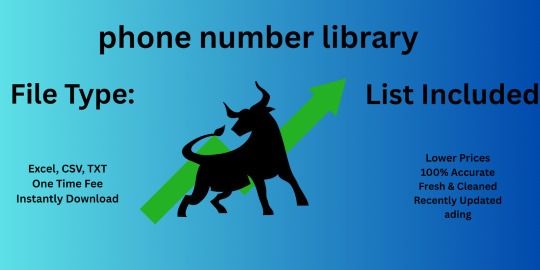
Implementing a Phone Number Library: Code Example
Here’s a quick example using libphonenumber-js in JavaScript:
import { parsePhoneNumberFromString } from 'libphonenumber-js'
const phone = parsePhoneNumberFromString('+14155552671')
if (phone.isValid()) {
console.log('Region:', phone.country)
console.log('E.164 Format:', phone.format('E.164'))
console.log('National Format:', phone.formatNational())
}
This simple code:
Validates the number
Extracts country
Outputs the number in multiple formats
Challenges in Using Phone Number Libraries
Despite their utility, developers face certain challenges:
1. Constant Updates
Numbering plans change frequently. Libraries need to update regularly to stay current with telecom regulations.
2. Data Size
Some versions of libphone number are large, making them unsuitable for client-side apps without tree-shaking or slimming.
3. Privacy Implications
Using carrier lookup and region detection can raise privacy issues, especially in regulated markets.
4. False Positives
A number may be valid in structure but still be unreachable or dormant.
Privacy and Compliance Considerations
Handling phone number data must comply with data protection regulations like:
GDPR (EU)
Phone numbers are considered personal data.
Must obtain consent for processing.
Users have the right to request deletion and access to their data.
CCPA (California)
Requires transparency in phone data collection.
Users must be able to opt out of data selling or sharing.
Industry Best Practices
Never store raw user inputs without normalization.
Encrypt stored numbers, especially if combined with other identifiers.
Provide clear terms about how numbers are used.
Future of Phone Number Libraries
As global connectivity evolves, phone number libraries are adapting to meet new demands:
1. Support for eSIM and Virtual Numbers
With the rise of digital SIMs and temporary phone numbers, libraries are being updated to recognize and manage these new identifiers.
2. AI Integration
Phone data is being used to feed machine learning models that detect fraud, personalize communication, or predict churn.
3. Real-time Validation APIs
Developers now have access to API-based services that not only validate format but also check if the number is active or reachable in real time.
4. Voice Assistant and IoT Expansion
As devices like smart speakers and IoT gadgets adopt voice calling, phone libraries will need to be embedded in non-traditional environments.
Thanks for reading..
SEO Expate Bangladesh Ltd.
0 notes
Text
What is the Benefit of Using AVS?
Address Verification Service (AVS) is a critical component for any business that depends on the timely and accurate delivery of mail, packages, or services. AVS technologies cleanse, standardize, and verify mailing addresses in real time, ensuring that customer data is correct before sending out physical or digital communications. In this article, we delve into the myriad benefits of leveraging AVS, from cost savings and improved deliverability to fraud reduction and enhanced customer satisfaction.

1. Reduced Undeliverable Mail and Return Costs
Incorrect or incomplete addresses lead to undeliverable mail, which accrues return-to-sender fees and wastes printing, postage, and labor resources.
Cost Efficiency: AVS reduces return rates by up to 30%, slashing unnecessary postal expenses.
Operational Savings: Eliminating manual address correction tasks frees staff to focus on higher-value activities.
2. Improved Customer Experience and Satisfaction
Nothing frustrates a customer more than not receiving an order, invoice, or promotional offer.
Timely Deliveries: Verified addresses translate to on-time deliveries and happy recipients.
Professionalism: Clean address data enhances brand reputation by demonstrating attention to detail.
3. Enhanced Data Quality and Analytics
High-quality address data is a cornerstone of effective marketing analysis and business intelligence.
Accurate Segmentation: With standardized addresses, businesses can more effectively segment geographic markets and tailor campaigns.
Reliable Reporting: Clean data reduces statistical noise, yielding more trustworthy insights.
4. Compliance with Postal and Data Privacy Regulations
Postal authorities often mandate standardized addressing formats to ensure mail processing efficiency. Meanwhile, data protection regulations impose strict requirements on personal data handling.
Postal Certification: Many AVS providers are USPS’s Certified Commercial Mail Service Providers, ensuring official compliance.
GDPR and CCPA Alignment: Secure AVS solutions protect personal data and maintain audit logs for regulatory reporting.
5. Fraud Prevention and Risk Management
Address verification is a first line of defense against fraudulent transactions in e-commerce and financial services.
Identity Verification: Matching customer-provided addresses against authoritative postal databases helps spot stolen identities.
Chargeback Reduction: Financial institutions use AVS results to validate billing addresses, reducing credit card fraud and chargebacks.
6. Seamless Integration and Automation
Modern AVS solutions integrate via RESTful APIs, batch processing, or connectors with leading CRMs and e-commerce platforms.
Real-Time Verification: Front-end form validation prevents bad data from entering your systems.
Batch Cleansing: Periodic cleansing of legacy databases ensures ongoing data integrity.
Workflow Automation: Tools like Zapier, Make, and native plugins for Salesforce, Shopify, and Magento streamline address hygiene within existing business processes.
7. Scalability for Growing Businesses
From startups sending a handful of shipments to enterprises dispatching millions of parcels, AVS services scale effortlessly.
Pay-As-You-Go Pricing: Many providers offer usage-based billing, allowing businesses to pay only for verifications performed.
Flexible Deployment: Cloud-based AVS can handle sudden spikes in verification volume during peak seasons.
8. Additional Value-Add Features
Beyond basic address checks, AVS platforms often offer:
Geocoding: Latitude/longitude data attached to addresses for location-based analytics and route optimization.
Postal Intelligence: Insights into mail carrier performance, delivery windows, and service levels.
International Formatting: Support for local postal formats in over 200 countries, reducing international shipping errors.
9. Return on Investment (ROI) Analysis
Quantifying the benefits of AVS helps secure budget and stakeholder buy-in.
Cost Savings Calculation: Compare the total cost of undeliverable mail (returns, reprints, labor) against AVS subscription fees.
Revenue Uplift: Improved delivery rates can boost repeat purchases and positive word-of-mouth referrals.
Conclusion
In today’s data-driven and customer-centric marketplace, Address Verification Service is no longer a nicety but a necessity. By ensuring that every piece of mail and package reaches its intended destination, AVS drives cost efficiencies, elevates customer satisfaction, enhances data quality, and fortifies fraud defenses. Investing in a scalable, compliant, and feature-rich AVS solution empowers businesses to operate confidently, knowing that their address data is accurate and their communications are effective
youtube
SITES WE SUPPORT
Tips To Send Direct Mail – Wix
1 note
·
View note
Text
Geocoding APIs compared: Pricing, free tiers and terms of use
https://www.bitoff.org/geocoding-apis-comparison/
0 notes
Text
Batch Address Validation Tool and Bulk Address Verification Software
When businesses manage thousands—or millions—of addresses, validating each one manually is impractical. That’s where batch address validation tools and bulk address verification software come into play. These solutions streamline address cleansing by processing large datasets efficiently and accurately.

What Is Batch Address Validation?
Batch address validation refers to the automated process of validating multiple addresses in a single operation. It typically involves uploading a file (CSV, Excel, or database) containing addresses, which the software then checks, corrects, formats, and appends with geolocation or delivery metadata.
Who Needs Bulk Address Verification?
Any organization managing high volumes of contact data can benefit, including:
Ecommerce retailers shipping to customers worldwide.
Financial institutions verifying client data.
Healthcare providers maintaining accurate patient records.
Government agencies validating census or mailing records.
Marketing agencies cleaning up lists for campaigns.
Key Benefits of Bulk Address Verification Software
1. Improved Deliverability
Clean data ensures your packages, documents, and marketing mailers reach the right person at the right location.
2. Cost Efficiency
Avoiding undeliverable mail means reduced waste in printing, postage, and customer service follow-up.
3. Database Accuracy
Maintaining accurate addresses in your CRM, ERP, or mailing list helps improve segmentation and customer engagement.
4. Time Savings
What would take weeks manually can now be done in minutes or hours with bulk processing tools.
5. Regulatory Compliance
Meet legal and industry data standards more easily with clean, validated address data.
Features to Expect from a Batch Address Validation Tool
When evaluating providers, check for the following capabilities:
Large File Upload Support: Ability to handle millions of records.
Address Standardization: Correcting misspellings, filling in missing components, and formatting according to regional norms.
Geocoding Integration: Assigning latitude and longitude to each validated address.
Duplicate Detection & Merging: Identifying and consolidating redundant entries.
Reporting and Audit Trails: For compliance and quality assurance.
Popular Batch Address Verification Tools
Here are leading tools in 2025:
1. Melissa Global Address Verification
Features: Supports batch and real-time validation, international formatting, and geocoding.
Integration: Works with Excel, SQL Server, and Salesforce.
2. Loqate Bulk Cleanse
Strengths: Excel-friendly UI, supports uploads via drag-and-drop, and instant insights.
Ideal For: Businesses looking to clean customer databases or mailing lists quickly.
3. Smarty Bulk Address Validation
Highlights: Fast processing, intuitive dashboard, and competitive pricing.
Free Tier: Great for small businesses or pilot projects.
4. Experian Bulk Address Verification
Capabilities: Cleans large datasets with regional postal expertise.
Notable Use Case: Utility companies and financial services.
5. Data Ladder’s DataMatch Enterprise
Advanced Matching: Beyond address validation, it detects data anomalies and fuzzy matches.
Use Case: Enterprise-grade data cleansing for mergers or CRM migrations.
How to Use Bulk Address Verification Software
Using batch tools is typically simple and follows this flow:
Upload Your File: Use CSV, Excel, or database export.
Map Fields: Match your columns with the tool’s required address fields.
Validate & Clean: The software standardizes, verifies, and corrects addresses.
Download Results: Export a clean file with enriched metadata (ZIP+4, geocode, etc.)
Import Back: Upload your clean list into your CRM or ERP system.
Integration Options for Bulk Address Validation
Many vendors offer APIs or direct plugins for:
Salesforce
Microsoft Dynamics
HubSpot
Oracle and SAP
Google Sheets
MySQL / PostgreSQL / SQL Server
Whether you're cleaning one-time datasets or automating ongoing data ingestion, integration capabilities matter.
SEO Use Cases: Why Batch Address Tools Help Digital Businesses
In the context of SEO and digital marketing, bulk address validation plays a key role:
Improved Local SEO Accuracy: Accurate NAP (Name, Address, Phone) data ensures consistent local listings and better visibility.
Better Audience Segmentation: Clean data supports targeted, geo-focused marketing.
Lower Email Bounce Rates: Often tied to postal address quality in cross-channel databases.
Final Thoughts
Batch address validation tools and bulk verification software are essential for cleaning and maintaining large datasets. These platforms save time, cut costs, and improve delivery accuracy—making them indispensable for logistics, ecommerce, and CRM management.
Key Takeaways
Use international address validation to expand globally without delivery errors.
Choose batch tools to clean large datasets in one go.
Prioritize features like postal certification, coverage, geocoding, and compliance.
Integrate with your business tools for automated, real-time validation.
Whether you're validating a single international address or millions in a database, the right tools empower your operations and increase your brand's reliability across borders.
youtube
SITES WE SUPPORT
Validate Address With API – Wix
0 notes
Text
Google APIs: Powering Innovation Across the Web
In a world driven by data, seamless integrations, and intelligent services, Google APIs have become a go-to solution for developers. Whether you’re building a mobile app, a web tool, or an enterprise platform, Google’s APIs offer a reliable way to tap into the power of services like Maps, YouTube, Gmail, and Google Cloud.
What Are Google APIs?

Google APIs are tools and services offered by Google that allow developers to interact with Google’s platforms and use their functionalities within their own applications. These APIs cover everything from location tracking to machine learning and cloud services.
Popular Google APIs include:
Maps API — Embed maps and location features.
YouTube API — Manage videos and channels.
Drive API — Access and manage Google Drive files.
Translate API — Translate text between languages.
Cloud Vision API — Analyze image content.
Firebase APIs — Power real-time apps with backend services.
Why Use Google APIs?
Access Rich Data: Leverage real-time and historical data from Google.
Build Smarter Apps: Integrate AI, translation, and location features effortlessly.
Cross-Platform Support: Use on web, mobile, and desktop.
Scalable & Reliable: Backed by Google’s infrastructure.
Free Tiers Available: Many APIs offer generous free quotas for developers.
Common Categories of Google APIs
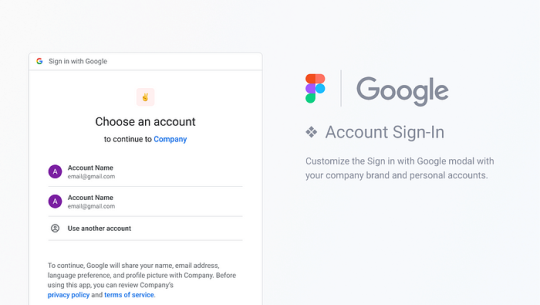
Maps & Location
Maps JavaScript API
Geocoding & Places API
Distance Matrix API
Media & YouTube
YouTube Data API
YouTube Analytics API
Productivity & Communication
Gmail API
Google Calendar API
Drive, Docs & Sheets APIs
Machine Learning
Vision API — Detect objects, faces, text.
Natural Language API — Understand text meaning.
Translation API — Instant language translation.
Speech APIs — Convert between speech and text.
Firebase APIs
Authentication, Firestore, Realtime Database, Cloud Messaging, and more.
How to Use a Google API
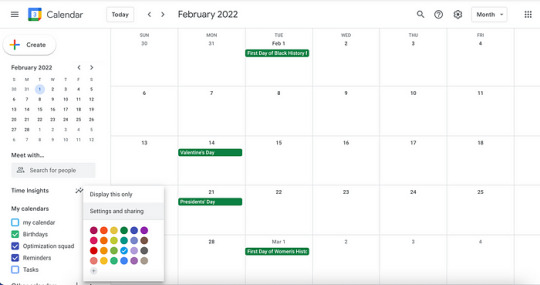
Create a Project in Google Cloud Console.
Enable the API you want (e.g., Maps, YouTube, etc.).
Generate Credentials (API key, OAuth client ID, or Service Account).
Install a Client Library or use direct REST calls.
Start Building your application using the API.
Discover the Full Guide Now
Authentication Methods
API Key: For simple apps that don’t access personal user data.
OAuth 2.0: Needed for accessing user-specific services like Gmail or Drive.
Service Account: For server-to-server interactions.
Real-World Use Cases
Ride-Sharing: Maps + Distance Matrix APIs.
E-commerce: Vision API for image recognition, Sheets API for inventory.
Education Apps: Drive & Classroom APIs for file management.
AI Chatbots: Natural Language + Speech APIs.
Costs & Quotas
Most Google APIs have free monthly usage quotas. Examples:
Maps API: 28,000 free map loads/month.
Vision API: 1,000 units/month free.
Translate API: 500K characters/month free.
Monitor usage in your Google Cloud Console and set billing alerts to avoid surprises.
Best Practices

Secure your API keys — don’t expose them in public code.
Use caching to reduce repeated API calls.
Read the official documentation thoroughly.
Handle errors and rate limits gracefully in your app.
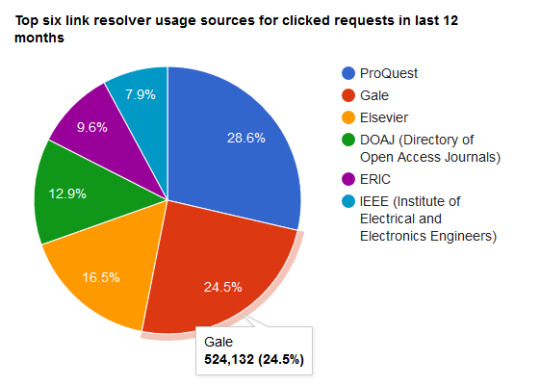
Google APIs are powerful tools that help developers build feature-rich, scalable, and intelligent applications. Whether you’re building for web, mobile, or enterprise, there’s likely a Google API that can speed up development and improve user experience.
So if you’re planning to add maps, manage content, automate workflows, or introduce AI to your app — Google APIs have got you covered.
Helpful Links:
Google API Librar
Google API Doc
API Pricing
0 notes
Text
What is Geolocation and How to Best Use Geolocation API?
Geolocation refers to the process of identifying a device’s physical location using GPS, Wi-Fi, cellular networks, or IP addresses. The Google Geolocation API allows developers to obtain a user’s location without relying solely on GPS, making it a valuable tool for location-based applications.

How Google Geolocation API Works
Google Geolocation API determines a device's location by:
Wi-Fi Signals: Identifies nearby Wi-Fi networks and matches them with Google’s database.
Cell Towers: Uses information from cell towers to approximate location.
GPS Data: Retrieves precise latitude and longitude from GPS-enabled devices.
IP Address Lookup: Estimates a general location based on IP address.
Features of Google Geolocation API
Accurate Location Detection
Provides precise geolocation data with latitude and longitude.
Works indoors and in areas with weak GPS signals.
Reverse Geocoding
Converts latitude and longitude coordinates into human-readable addresses.
Helps in mapping locations to postal addresses.
Real-Time Tracking
Allows businesses to track delivery fleets, users, and mobile assets.
Provides real-time location updates for navigation apps.
Time Zone Detection
Identifies a user’s time zone based on their location.
Useful for scheduling applications and global businesses.
Customizable Geofencing
Enables businesses to create virtual geographic boundaries.
Triggers notifications when a user enters or exits a predefined area.
Use Cases of Geolocation API
E-commerce & Delivery Services: Enables real-time tracking of shipments and delivery personnel.
Navigation & Ride-Sharing Apps: Powers location-based services for efficient route planning.
Weather Applications: Provides localized weather updates based on user location.
Security & Fraud Prevention: Detects unusual login locations and enhances authentication processes.
How to Use Google Geolocation API
Enable the API on Google Cloud
Sign in to Google Cloud Console and enable the Geolocation API.
Generate an API key for authentication.
Send a Request for Location Data
Make an HTTP request with Wi-Fi access points, cell tower IDs, or IP address.
Parse the JSON response to extract location details.
Integrate with Mobile or Web Apps
Implement the API using JavaScript, Python, or Android/iOS SDKs.
Display location data on interactive maps.
Optimize API Usage
Minimize API calls by caching recent location data.
Use location updates only when necessary to conserve battery and data usage.
Pricing and Limits
Google Geolocation API follows a pay-as-you-go model with free usage limits. Businesses should check Google’s official pricing documentation to understand cost implications.
Conclusion
The Google Address Validation API and Geolocation APIs are essential tools for businesses that rely on accurate location data. Address validation enhances data accuracy, while geolocation improves user experiences in navigation, delivery, and security applications. By implementing these APIs effectively, businesses can optimize operations, reduce costs, and enhance customer satisfaction.
youtube
SITES WE SUPPORT
Verify Mexican Address – Wix
0 notes
Text
Vehicle Routing API and Route Optimization API: This is going to revolutionize route planning productivity.
When it comes down to effective route planning to optimize the efficiency of your fleet, the vehicle routing API and route optimization API from RouteSavvy can be the best friends you ever had. Developed by OnTerra Systems in the past decade ago, RouteSavvy has been providing these powerful APIs to help businesses all around the world to become easy with their operations. Be it a small and simple fleet or a complex and a gigantic logistics operation, here are your personalized solutions made for you.

Vehicle Routing Api: Easy, Effectively, and Credible.
The standard vehicle routing API offers robust, single-route optimization and has been trusted by software developers for more than a decade. This API is appropriate for companies that need to optimize routes for one vehicle at the time. It provides fast and reliable solutions to minimize fuel costs and travel time while improving overall efficiency of the fleet. It is ideal for small-scale operations or companies with simple route optimization requirements.
Route Optimization API PLUS: Excellent Features
A perfect fit for businesses whose needs have become more complicated, the latest route optimization API PLUS makes its debut in 2023. It inherits everything from the highly important vehicle routing API, while taking the experience further. Some of its major improvements over the base API include automated multi-vehicle route optimization and time windows. Because of this, companies can already manage routes of several vehicles at once; it primarily serves the logistics companies, delivery services,
and specialties that very much rely on efficient fleet management.
Routes optimization for the fleet unlike an individual vehicle can now be done through the API PLUS, so all deliveries or service calls would be performed in the best possible manners. An important feature within this context is time windows, which will allow users to determine when a delivery has to fall within a certain time frame for time-sensitive operations.
Cost-Effective, High-Value API Solutions
Whether you opt for the standard vehicle routing API or the more advanced route optimization API PLUS, you are getting an affordable, high-function, and high-value solution. OnTerra Systems has ensured that the threshold is low so that any size of business can afford it. Both versions are high-function, cost-efficient, and are included with most of today’s API functions that follow current standards, thus ensuring smooth integration and reliable performance.

Unlimited Benefits: Bing Maps Enterprise API Subscription
While it lasts, all new Route Savvy API PLUS orders carry with them a free Bing Maps Enterprise API subscription. This is a rather helpful add-on since the Bing Maps APIs allow you to geocode addresses, show optimized routes on a map, and add richness to visualization and interactivity features to improve the user experience overall. With Bing Maps tied into your vehicle routing API or route optimization API, you have even more powerful mapping features set up to complement your optimization requirements.
The route optimization API and the vehicle routing API are the solutions provided by Route Savvy for businesses looking for simple, cheap, and efficient means of optimizing their fleet management operations. Whether you run route optimization for a single vehicle or for an entire fleet, these APIs are dedicated to enhancing your operation in a cost-effective and efficient manner. With the Bing Maps Enterprise API as an add-on, the Route Savvy API PLUS gives you everything you will need to elevate routing capabilities to their utmost. Start optimizing your routes today and witness the transformation in your business.
Source URL https://sites.google.com/view/vehicle-routing-api/home
0 notes
Text
API-Free: The Secret to Achieving Advanced Features at a Low Cost
As artificial intelligence (AI) continues to drive the development of different fields from video script generation to geocoding solutions, the digital landscape is undergoing tremendous changes. The introduction of innovative models such as Fuyu - 8b and Heaven Heart has set new standards for AI capabilities, enabling developers to design innovative AI applications that meet various needs. Among them, OAuth2 is a basic authentication structure that protects the API user interfaces of platforms such as AI video script generation platforms, which automatically create web content with impressive efficiency.
In the field of intelligent chatbots, the proliferation of dedicated APIs such as the Kimi AI API is noteworthy. These APIs encourage designers to build chatbots that can replicate human - like conversations, dynamically adapt to customer inputs, and provide feedback that enhances personal engagement. This intelligent chatbot API utilizes the underlying architecture of AI agents, which is rooted in the concept of AI agent architecture. This architecture allows for the seamless integration of numerous AI components to produce an acceptable and cohesive personal experience.
The use of text - generating AI has also grown rapidly. Systems using such AI aim to generate contextually appropriate and coherent text, whether for customer support, content development, or various other applications. These AI models can generate a large amount of text that not only conforms to the customer's intention but also resembles human writing style to some extent, making them almost identical to human - generated materials.
In terms of vision, reverse image search engine tools are becoming increasingly sophisticated, allowing users to identify and locate images with a single click. These tools are usually supported by powerful artificial intelligence models that can analyze and match images with incredible accuracy, facilitating everything from e - commerce applications to digital asset management. The integration of these artificial intelligence tools with other platforms has become more structured, thanks in part to open platform API interfaces that allow developers to easily connect different systems and services.
The e - invoice interface represents a significant step forward in economic technology in terms of automation and secure procurement. The interface utilizes artificial intelligence to ensure that electronic bills are processed correctly and effectively, reducing the risk of errors and accelerating the settlement cycle. Incorporating artificial intelligence into such financial systems is not only about efficiency but also about improving the overall accuracy and integrity of economic procurement.
In the field of geographic information, the expansion of artificial intelligence maps is changing the way we interact with spatial information. Tools such as the Geoapify Geocoding API are leading this trend, providing developers with powerful geocoding services that can convert addresses into geographic coordinates and vice versa. This API is particularly useful for applications that require precise location data, such as logistics, travel, and urban planning.
At the same time, the Qianfan SDK has brought a wave to the developer community, providing a comprehensive toolkit for building AI applications. The design goal of this SDK is to be flexible and able to integrate different AI frameworks and APIs into one application, thus accelerating the development process. It is particularly useful for developers who wish to integrate advanced AI functions such as natural language processing or computer vision into their applications.
The rise of systems such as the text deletion tool Texttract highlights the growing demand for artificial intelligence services that can handle messy data. Texttract utilizes artificial intelligence to extract useful information from various records, making it a very useful tool in markets such as law, healthcare, and finance, where the ability to quickly analyze and evaluate a large amount of text is crucial.
In the broader context of AI development, the relationship between AIGC (AI - generated web content) and large language models is becoming increasingly close. Large language models (such as the models that drive text - generating AI) are the engines behind AIGC, capable of creating various contents from text to video scripts with minimal human processing. For anyone related to AI development, understanding the composition of large models is crucial, because these models are defined by their ability to process and generate human - like text.
Free AI APIs are equalizing the accessibility of these advanced devices, allowing developers, startups, and hobbyists to experiment with AI without a large capital investment. Platforms using free API interfaces are promoting development by lowering the entry barrier, resulting in a wider range of applications in the market. The accessibility of such APIs combined with detailed API integration management tools ensures that even complex systems can be easily established and published.
For example, weather APIs are gradually being integrated into applications in various fields from agriculture to event planning. These APIs provide real - time weather data that is crucial for the decision - making process, and durable API management platforms help to integrate them into existing systems.
Similarly, translation APIs are changing the way people and businesses interact across language barriers. These APIs utilize innovative AI models to provide real - time accurate translations, making it easier for global teams to cooperate and for businesses to enter larger target markets. Using foreign APIs (especially those providing free API services) further expands the coverage of such tools.
The concept of the API open platform is the core of this ecosystem, using a central interface where developers can access, process, and integrate various APIs into their applications. These systems usually include comprehensive documentation and tools, such as the Postman download portal, which simplifies the process of testing and deploying APIs.
Mijian Integration As artificial intelligence continues to develop, the use of artificial intelligence API interfaces is expected to expand, and more and more platforms will open their artificial intelligence functions. This open platform approach not only encourages innovation but also ensures that the advantages of artificial intelligence are more widely spread.
In conclusion, the rapid development of artificial intelligence technology (as evidenced by the expansion of intelligent chatbot APIs, text generators, reverse image search tools, etc.) is reshaping the way we interact with digital systems. From the integration of geocoding solutions to the automation of e - invoices, artificial intelligence is leading the way in promoting efficiency, precision, and innovation in multiple fields. As developers continue to utilize the power of open systems and free APIs, the possibilities for new transformative applications are virtually limitless.
Explinks is a leading API integration management platform in China, focusing on providing developers with comprehensive, efficient and easy-to-use API integration solutions.
0 notes
Text
What is the Best API for Address Autocomplete?
In today's fast-paced digital world, providing a seamless user experience is crucial for businesses across all industries. One of the most effective ways to enhance the user experience, particularly in online forms, is by implementing an address autocomplete API. Address autocomplete APIs help users quickly and accurately enter their addresses by suggesting possible matches as they type. This not only speeds up the form-filling process but also reduces the likelihood of errors, which can lead to costly delivery mistakes or failed transactions.
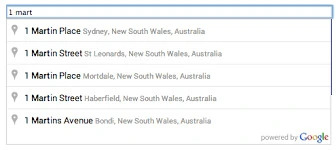
With several address autocomplete APIs available on the market, choosing the best one for your business can be challenging. In this article, we'll explore some of the top address autocomplete APIs and highlight their features, benefits, and use cases to help you make an informed decision.
1. Google Places Autocomplete API
The Google Places Autocomplete API is one of the most popular and widely used address autocomplete APIs. Powered by Google's vast database of locations, this API provides accurate and reliable address suggestions as users type. It's known for its global coverage, making it an excellent choice for businesses with an international presence.
Key Features:
Global Coverage: The Google Places Autocomplete API supports address autocomplete for over 240 countries and territories.
Real-Time Suggestions: The API provides real-time address suggestions as users type, enhancing the user experience.
Customizable: Developers can customize the API to return specific types of places, such as addresses, establishments, or points of interest.
Geocoding: The API also provides geocoding capabilities, allowing you to convert addresses into geographic coordinates.
Use Cases:
E-commerce: Streamline the checkout process by helping customers quickly enter their shipping addresses.
Ride-Sharing Apps: Allow users to easily select their pickup and drop-off locations.
Food Delivery Services: Ensure accurate delivery by providing real-time address suggestions.
Pros:
Extensive global coverage.
High accuracy and reliability.
Customizable to fit specific use cases.
Cons:
Cost can be a concern for businesses with high API usage.
Limited free tier, with charges based on the number of requests.
2. SmartyStreets
SmartyStreets is a robust address autocomplete API known for its accuracy and validation capabilities. Unlike some other APIs, SmartyStreets not only suggests addresses but also verifies them against authoritative postal databases, ensuring that the addresses are deliverable.
Key Features:
Address Validation: SmartyStreets validates addresses in real-time against official postal databases, reducing the risk of undeliverable mail.
International Coverage: The API supports address autocomplete for over 240 countries and territories.
Geocoding and Reverse Geocoding: SmartyStreets provides geocoding and reverse geocoding capabilities, allowing you to convert addresses to coordinates and vice versa.
youtube
SITES WE SUPPORT
Insurance Letter API – Wix
0 notes
Text
How to Validate an Address?
Validating an address is a crucial step in ensuring accurate and efficient communication, deliveries, and customer service. Whether you're a business handling numerous shipments or an individual sending mail, knowing how to validate an address can save time, reduce errors, and improve overall efficiency.

Steps to Validate an Address
Use an Address Validation Tool: Several online tools and APIs can validate addresses in real-time. These tools compare the provided address against official postal databases to ensure accuracy. Popular options include Google Maps API, SmartyStreets, and Melissa Data.
Standardize the Address Format: Before validation, ensure the address is in a standardized format. This involves using correct abbreviations, punctuation, and layout as per postal service guidelines. For instance, in the US, the USPS provides specific address formatting rules.
Check for Completeness: An address must include all necessary components such as street number, street name, city, state, and postal code. Missing information can lead to failed validations or incorrect deliveries.
Verify Against Official Databases: Use postal service databases or third-party address validation services to check the address. These databases contain updated and accurate address information, ensuring the provided address exists and is correct.
Cross-Check with Geocoding: Geocoding involves converting an address into geographical coordinates (latitude and longitude). By geocoding an address, you can confirm its physical location, adding an extra layer of validation.
Manually Review: In some cases, automated tools may not catch all errors. Manually reviewing addresses, especially those that fail validation, can help identify and correct issues that automated systems might miss.
Tools and Services for Address Validation
Google Maps API: Provides geocoding and address validation services. While not entirely free, it offers a free tier suitable for low-volume usage.
SmartyStreets: Offers real-time address validation and standardization for US addresses with a free tier for up to 250 lookups per month.
Melissa Data: Provides global address verification services with a free tier allowing up to 1,000 lookups per month.
PostGrid: Offers a free Address Verification API with support for US and international addresses, allowing 100 lookups per month.
Benefits of Address Validation
Improved Delivery Accuracy: Ensuring addresses are correct reduces the chances of misdeliveries, saving time and resources.
Enhanced Customer Satisfaction: Accurate addresses lead to timely deliveries and improved customer satisfaction, fostering trust and loyalty.
Reduced Costs: Address validation minimizes the costs associated with returned mail, re-shipments, and manual address correction efforts.
Better Data Quality: Validating addresses maintains high-quality data, crucial for efficient operations and decision-making.
Conclusion
Address validation is an essential process for maintaining accurate and efficient operations. By following the steps outlined above and leveraging available tools and services, you can ensure your addresses are correct, complete, and up-to-date. This not only improves delivery accuracy and customer satisfaction but also reduces operational costs and enhances overall efficiency.
youtube
SITES WE SUPPORT
Validate Client Letter – Wix
0 notes
Text
What is the Best API for Address Autocomplete?
Address autocomplete APIs have become crucial tools for enhancing user experience and accuracy in applications involving address input. These APIs provide real-time suggestions and auto-completion of addresses based on user input, streamlining the checkout process, form filling, and location searches. Choosing the best API for address autocomplete depends on various factors such as accuracy, coverage, ease of integration, and cost. Here's a detailed look at some of the top contenders in this space:
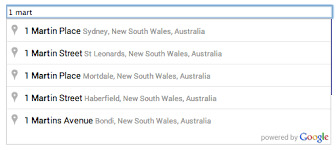
1. Google Places Autocomplete API
Key Features: Google's API offers comprehensive address predictions based on a user's input. It covers a wide range of countries and supports various address formats.
Pros: High accuracy, extensive coverage, and detailed place information.
Cons: Usage costs can escalate with large volumes, and there are usage limits for free tiers.
2. Algolia Places API
Key Features: Algolia's API provides fast and relevant address autocomplete results. It's easy to integrate and offers customizable search features.
Pros: Fast response times, straightforward integration, and generous free tier.
Cons: May require additional configuration for certain advanced features.
3. Mapbox Geocoding API
Key Features: Mapbox offers a geocoding API that includes address autocomplete functionality. It's known for its mapping capabilities and spatial data services.
Pros: Detailed geospatial data, customizable mapping solutions.
Cons: May be more complex to set up compared to dedicated autocomplete APIs.
4. SmartyStreets API
Key Features: SmartyStreets specializes in address verification and validation. Their API provides accurate suggestions for US-based addresses.
Pros: Focus on address accuracy and validation.
Cons: Limited international coverage compared to global APIs like Google's.
5. Here Geocoding & Search API
Key Features: Here offers a powerful geocoding and search API that includes address autocomplete functionality. It covers a wide range of countries and supports various languages.
Pros: Detailed mapping data, good international coverage.
Cons: Pricing can be higher for large-scale usage.
Choosing the Right API
Selecting the best address autocomplete API depends on your project's specific requirements. Factors to consider include:
Accuracy: How well does the API predict and validate addresses?
Coverage: Does the API support the countries and regions relevant to your application?
Cost: Consider the pricing structure, including free usage tiers and potential scaling costs.
Ease of Integration: Evaluate how straightforward it is to integrate and customize the API within your application.
In conclusion, the "best" API for address autocomplete varies based on your project's needs. Google Places Autocomplete API is a popular choice due to its extensive coverage and reliability, but alternatives like Algolia, Mapbox, SmartyStreets, and Here offer compelling features tailored to different use cases and regions.
youtube
SITES WE SUPPORT
API To Verify Addresses – Wix
0 notes
Text
Are there any international address validation providers?

In today’s global marketplace, accurate address data is not just a convenience—it’s a necessity. Businesses that ship internationally or operate in multiple countries must ensure their address records are correct and standardized. This leads us to a critical question: Are there any international address validation providers? The short answer is yes—and in this article, we’ll explore top international address validation providers, what features to look for, and how they enhance business operations.
What Is International Address Validation?
International address validation is the process of verifying, formatting, and correcting mailing addresses outside a business’s home country. This involves:
Validating addresses against postal databases in different countries.
Standardizing formats according to each nation’s mailing system.
Geocoding and checking deliverability.
Transliteration for addresses in non-Latin alphabets.
International address validation ensures that global shipments reach their destination reliably, and customer databases remain clean, up-to-date, and compliant with local postal systems.
Why You Need International Address Validation
For companies that sell or communicate globally, incorrect addresses result in:
Delivery delays or returns.
Increased shipping costs.
Failed marketing campaigns.
Frustrated customers.
Poor data hygiene across CRM and ERP systems.
With address validation software tailored for international operations, businesses can prevent these issues and build a reputation for efficiency and reliability.
Top International Address Validation Providers
Here are some of the most trusted international address validation services in 2025:
1. Loqate (GBG)
Coverage: 245+ countries and territories.
Key Features: Address verification, geocoding, transliteration, and real-time address autocomplete.
Why It Stands Out: Loqate combines global postal data with location intelligence, making it ideal for ecommerce, logistics, and multinational companies.
2. Melissa
Coverage: Over 240 countries.
Key Features: Batch validation, single address lookup, and multilingual support.
Strength: Melissa specializes in contact data validation for mail, email, phone, and name—all in one platform.
3. Smarty
Coverage: Over 240 countries.
Notable Tools: International address autocomplete and global address verification API.
USP: Offers free tier options for startups and developers.
4. Experian Address Validation
Coverage: 245 countries and territories.
Core Capabilities: Global data cleansing, address validation, and formatting.
Industries Served: Financial services, healthcare, ecommerce, and more.
5. Google Places API
Global Reach: While not a postal verification tool per se, it offers robust location autocomplete with address suggestions globally.
Use Case: Ideal for web forms and checkout experiences.
Key Features to Look For in a Global Address Validation Provider
When choosing an international address validator, consider the following:
1. Comprehensive Global Coverage
Ensure the provider covers all the countries you operate or ship to. Some tools might offer deep support for major markets but lack accuracy for developing regions.
2. Postal Certification
Look for CASS, SERP, or other regional postal certifications (e.g., USPS for the U.S., Royal Mail for the UK, etc.).
3. Real-Time & Batch Capabilities
Real-time API integration is essential for user-facing applications, while batch validation is ideal for cleaning large datasets.
4. Address Autocomplete
Autocomplete improves UX, reduces data entry errors, and speeds up checkout.
5. Transliteration & Multilingual Support
For countries using non-Latin scripts (e.g., China, Russia, Japan), transliteration is key for system compatibility and deliverability.
6. GDPR & Data Compliance
Ensure the provider is compliant with GDPR, CCPA, and other international data privacy laws.
youtube
SITES WE SUPPORT
Validate Address With API – Wix
0 notes
Text
Field Services and Free Geolocation
In the contemporary digital landscape, the integration of geolocation services into field services has become indispensable. The marriage of these technologies has revolutionized numerous industries, enhancing efficiency, optimizing resource allocation, and improving customer experiences. Leveraging free geolocation services has emerged as a cost-effective solution for businesses, offering invaluable insights into real-time location data without the burden of hefty financial investments. This article delves into the symbiotic relationship between field services and free geolocation, exploring its significance, benefits, and potential implications.
Introduction to Field Services and Geolocation
Field services encompass a broad spectrum of operations conducted at remote sites or client premises, spanning industries such as telecommunications, utilities, healthcare, and transportation. These services involve on-site installations, maintenance, repairs, deliveries, and other tasks necessitating physical presence. Geolocation technology enables the determination of an individual's or device's geographical location, utilizing various techniques such as GPS, Wi-Fi, cellular networks, and IP addresses.

The Integration of Geolocation in Field Services
The integration of geolocation in field services has empowered organizations to streamline operations and optimize workflows. By equipping field service personnel with GPS-enabled devices or leveraging geolocation APIs in software applications, businesses can efficiently dispatch technicians, track their movements in real-time, and dynamically adjust schedules based on proximity to service locations. This level of operational visibility enhances responsiveness, reduces travel time, and minimizes service downtime, ultimately translating into improved customer satisfaction and cost savings.
Benefits of Free Geolocation Services
Free geolocation services offer businesses access to essential location-based data at minimal or no cost, presenting a compelling value proposition. Platforms like Google Maps API, OpenStreetMap, and Mapbox provide developers with robust tools and datasets for incorporating mapping, routing, and geocoding functionalities into their applications. These services democratize access to geospatial information, enabling even small and medium-sized enterprises to harness the power of location intelligence without significant financial barriers.
Cost Efficiency and Scalability
Traditional geolocation solutions often entail substantial upfront investments in hardware, software licenses, and infrastructure. In contrast, free geolocation services operate on a freemium or pay-as-you-go model, allowing businesses to start small and scale resources according to demand. This scalability is particularly advantageous for startups and emerging businesses seeking to test the waters or expand operations without committing to long-term contracts or capital expenditures.
Community-driven Data and Collaboration
Many free geolocation services rely on crowd-sourced or community-driven data, leveraging contributions from users worldwide to improve map accuracy, update points of interest, and enhance routing algorithms. This collaborative approach fosters a dynamic ecosystem where developers, businesses, and end-users actively participate in refining geospatial datasets. Furthermore, open data initiatives promote transparency and accessibility, encouraging innovation and cross-industry collaboration in harnessing location-based insights for social good and economic development.
Challenges and Considerations
While free geolocation services offer compelling benefits, businesses must navigate potential challenges and considerations to maximize their utility and mitigate risks:
Data Accuracy and Reliability: Free geolocation services may exhibit variations in data accuracy and reliability compared to premium alternatives, necessitating thorough validation and quality assurance processes.
Privacy and Data Security: The collection and processing of geolocation data raise privacy concerns regarding user consent, data anonymization, and protection against unauthorized access or misuse. Compliance with regulations such as GDPR and CCPA is paramount to safeguarding individual privacy rights and avoiding legal repercussions.
Service Limitations and Support: Free geolocation services may impose usage limits, rate quotas, or feature restrictions, requiring businesses to assess their scalability and suitability for long-term growth. Additionally, the availability of technical support and service-level agreements (SLAs) should be evaluated to ensure prompt resolution of issues and continuity of operations.
Conclusion
The integration of free geolocation services in field services heralds a new era of efficiency, innovation, and accessibility. By leveraging cost-effective location intelligence solutions, businesses can optimize resource utilization, enhance operational agility, and deliver superior customer experiences. However, navigating privacy considerations, data quality challenges, and service limitations is essential to harnessing the full potential of geolocation technology responsibly and ethically. With prudent planning, strategic partnerships, and a commitment to compliance and transparency, organizations can unlock the transformative power of location-based insights while respecting individual privacy rights and societal values.
youtube
SITES WE SUPPORT
Locate HIPAA Mails – Weebly
1 note
·
View note